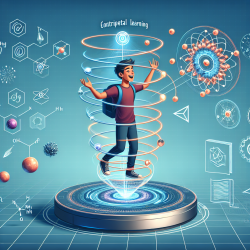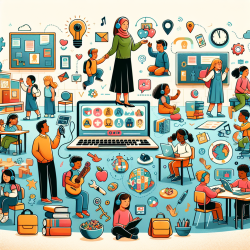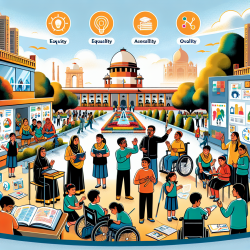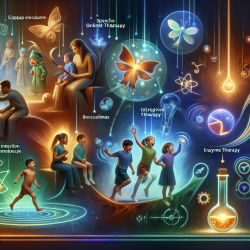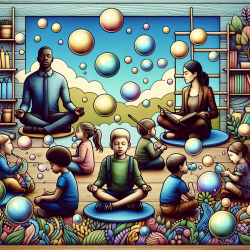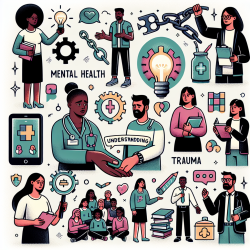Introduction
In the ever-evolving landscape of education, the quest for effective teaching methods is relentless. A recent study, "Effects of Embodied Learning and Digital Platform on the Retention of Physics Content: Centripetal Force," sheds light on how embodied learning can significantly enhance the retention of complex physics concepts, particularly centripetal force. This blog delves into the findings of this study and explores how educators can harness these insights to improve learning outcomes for students.
Understanding Embodied Learning
Embodied learning is grounded in the idea that knowledge is deeply connected to sensorimotor systems. By engaging these systems, learning can be more effective. The study in question examined how different levels of embodiment and educational platforms affect immediate and delayed learning gains. Participants engaged in lessons on centripetal force using varying degrees of embodiment across three platforms: a mixed reality environment (SMALLab), an interactive whiteboard, and a desktop computer.
Key Findings
- Immediate Learning Gains: Participants showed significant learning improvements immediately after the lessons, regardless of the platform or level of embodiment.
- Delayed Learning Gains: Over time, participants in high embodiment conditions demonstrated better retention, particularly in tasks requiring generative knowledge, such as drawing vectors.
- Platform Influence: While the platform did not significantly affect immediate learning, the SMALLab environment showed potential for greater delayed learning gains due to its immersive and sensorimotor-rich setup.
Implications for Educators
The study's findings suggest that incorporating more embodied learning experiences in educational settings can enhance retention and understanding of complex concepts. Here are some practical ways educators can apply these insights:
- Integrate Sensorimotor Activities: Design lessons that involve physical activities related to the content, such as using gestures or manipulatives to represent abstract concepts.
- Utilize Mixed Reality Environments: Where possible, incorporate mixed reality platforms that allow students to interact with digital and physical elements, enhancing engagement and comprehension.
- Focus on Generative Tasks: Encourage students to apply their knowledge through tasks that require creation or manipulation, such as drawing or building models.
Conclusion
Embodied learning offers a promising avenue for enhancing educational outcomes, particularly in STEM subjects. By aligning teaching methods with the principles of embodied cognition, educators can foster deeper understanding and retention of complex concepts. As technology continues to evolve, the integration of digital platforms with embodied learning experiences will likely become increasingly accessible and impactful.
To read the original research paper, please follow this link: Effects of Embodied Learning and Digital Platform on the Retention of Physics Content: Centripetal Force.
